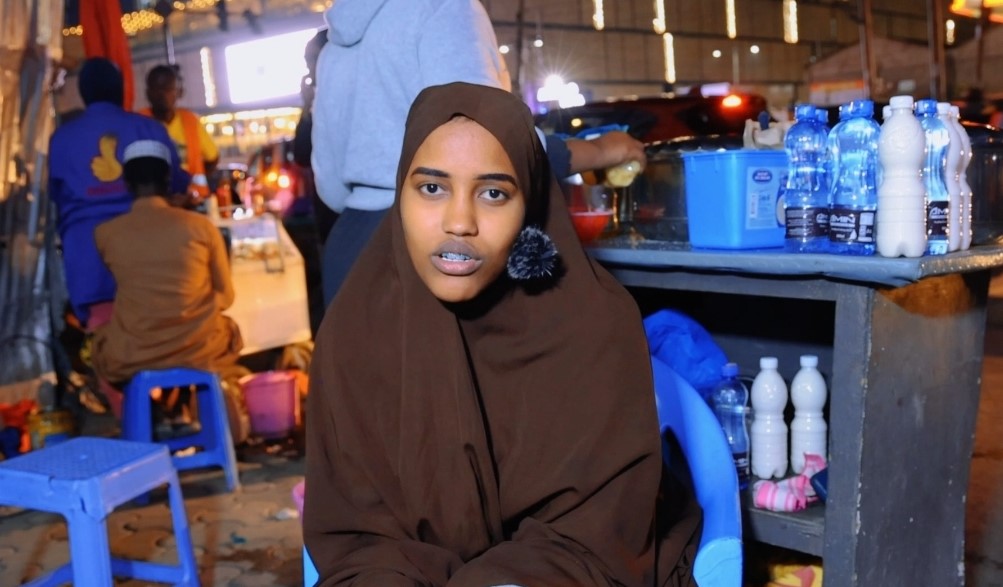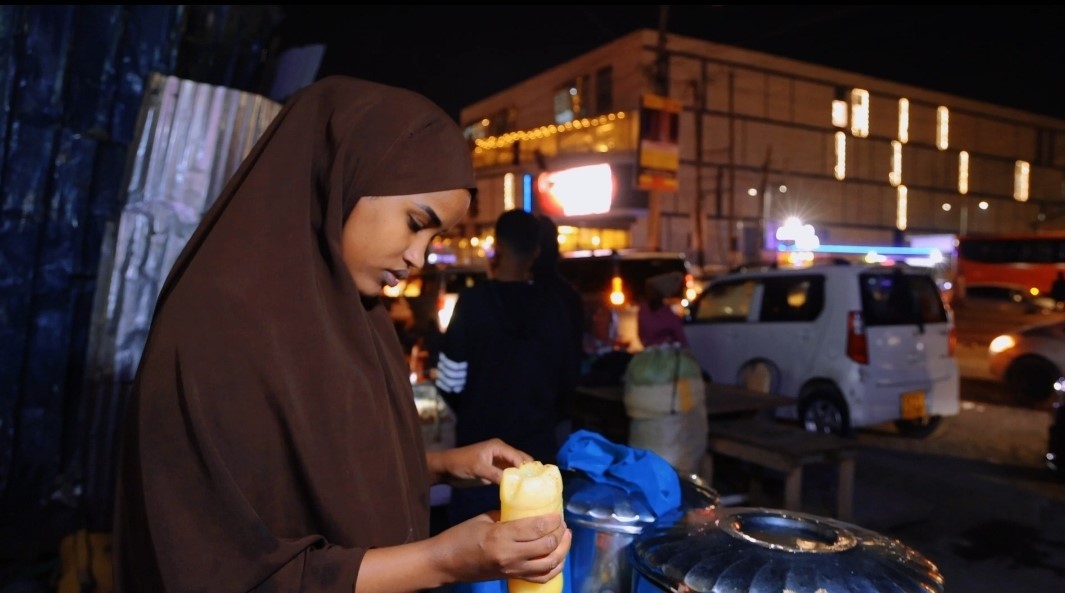Eastleigh woman's story of survival, evading city askaris to fend for her family

She often faces harassment from Nairobi City County’s officials, who chase away undesignated vendors like her.
Fatuma Abdiaziz Osman, a 23-year-old single mother of two, spends her days selling cambuulo, a mixture of beans and maize, on Eastleigh's General Wariungi Street in Nairobi. Her modest food stall is positioned directly across the Business Bay Square Mall, one of the largest shopping centres in East and Central Africa.
Every day, she prepares food with the hope that sales will be strong enough to support her family. She has no other source of support, relying solely on her small business to feed and care for her young children.
More To Read
- How community initiative is reviving Eastleigh’s cricket legacy
- Eastleigh MCA blames county officials for destruction of newly built Captain Mungai Street
- Youth football comes alive in Eastleigh as Fazam Academy clinches Moi Cup title
- Eastleigh’s 24-hour economy key to Kenya’s commerce, says CS Lee Kinyanjui
- Nairobi County, Eastleigh Business Association agree on food safety and restaurant licensing
- CBE curriculum spirit alive in Eastleigh as parents lead new wave of youth football development
Fatuma’s story is one marked by loss, hardship, and resilience. She was born in Mandera, a town in north eastern Kenya near the Somalia border. When her mother passed away, her father took her to Kampala, Uganda, where she was to live with her stepmother.
Her stepmother, who was still married to Fatuma’s father, took charge of raising her, but Fatuma says that she always felt a lack of warmth and understanding. Despite this, she completed her primary education in Kampala.
However, her hopes of continuing her studies were dashed when she was kept home to take care of household chores, and never given the opportunity to attend secondary school.
In 2018, Fatuma’s life took another turn. Her stepmother travelled to Nairobi to seek medical treatment, and Fatuma accompanied her. The stepmother never returned to Kampala, choosing instead to settle in Nairobi and start a business.
Fatuma continued to live under her stepmother’s roof, performing housework and taking care of the family. Her days were filled with the monotony of domestic tasks, with little opportunity to interact with others or make friends.
Fatuma found an outlet for her isolation in social media. Whenever she found time, she would chat with strangers online, seeking connection and a break from her everyday life. During this time, she met a man with whom she quickly formed a bond. Desiring an escape from her restricted life and believing that marriage would lead to greater happiness, she decided to marry him.
"I wanted to go to school and get an education, but because that did not happen and I really wanted to escape from problems, I decided to get married thinking it would end all my suffering," she said.
In March 2020, Fatuma’s marriage seemed like the beginning of a new life. Her elderly father had given her away in marriage with hopes that she would find love and stability. But this new chapter was soon marked by more challenges.
 Fatuma hopes to eventually secure a more stable livelihood so that she leaves General Wariungi Street to provide a better life for her children. (Photo: Abdirahman Khalif)
Fatuma hopes to eventually secure a more stable livelihood so that she leaves General Wariungi Street to provide a better life for her children. (Photo: Abdirahman Khalif)
Her husband worked in a shop in Nairobi's central business district, but a few months into their marriage, he stopped working without explanation. As time went on, he remained unemployed, relying entirely on Fatuma.
Fatuma did not push him to seek work, choosing instead to reach out to relatives abroad for financial assistance. With these funds, she covered their household expenses, enabling her husband to avoid looking for a job. Despite their struggles, Fatuma became pregnant.
Faced with the growing costs of supporting her family, she began selling homemade food around Eastleigh's malls and shops and took on occasional work as a maid.
In February 2021, Fatuma gave birth to her first child. For a short time, her husband resumed work, providing some stability. However, soon after, she became pregnant again, and her husband once more decided to stay home. This time, the family faced deeper hardships.
No food at home
"Most of the time, there was no food at home, which deeply affected my health and mental state," she says.
Often, she would endure entire days with only water while her young child cried out in hunger.
When the time came to give birth to her second child in 2023, Fatuma faced the challenge of affording the delivery. Her father, elderly and unwell, could not offer financial help, and her stepmother remained indifferent.
Fortunately, an aunt gave her $300 (Sh38,850 at today’s exchange rate), which covered her medical costs. The experience was difficult and this pushed Fatuma to make a life-altering decision.
With no improvements on her husband's behaviour and an increasingly stressful home environment, she decided to separate from him and raise her children alone.
Today, Fatuma supports her children independently through her cambuulo business. She earns approximately Sh700 daily, setting aside Sh500 for rent and using the remainder to buy food and milk.
Despite her best efforts, her small business is fraught with challenges.
She often faces harassment from Nairobi City County’s officials, who chase away undesignated vendors like her.
On rainy days, sales often plummet as few people venture out, leaving her with unsold food and resulting losses.
Still, Fatuma remains determined. She hopes to eventually secure a more stable livelihood that would allow her to leave General Wariungi Street and provide a better life for her children.
The struggle to make ends meet is constant, but she perseveres, motivated by the desire to provide for her family and create a future of greater stability and security.
Top Stories Today














































